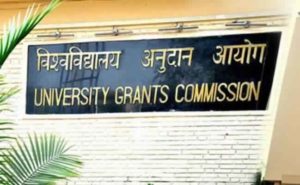UGC issues guidelines for equal opportunities in higher education
The University Grants Commission (UGC) has issued guidelines for Higher Education Institutions (HEIs) to provide equitable opportunities to Socio-Economically Disadvantaged Groups (SEDGs). The guidelines align with the recommendations of the National Education Policy (NEP) 2020, which emphasizes accessibility, equity, and inclusivity in higher education. The UGC recommended that all universities and HEIs in India follow these guidelines to improve educational opportunities for students from disadvantaged backgrounds. The commission outlined specific courses of action to increase participation of SEDG students in higher education through access, equity, and inclusion.
Key steps for universities and HEIs
Universities and HEIs should take the following steps:
| Allow flexibility in learning and earning | Enable students to gain knowledge and skills to earn a living while studying |
| Identify on-campus work | Determine part-time work aligned with local needs and languages |
| Promote “earn while learn” | Publicize opportunities for students to work while studying |
| Ensure transparent selection | Prioritize students with financial need |
| Seek collaboration and funding | Partner with government, NGOs and companies |
| Include in assessment | Factor “earn while learn” in accreditation |
Sensitization programs on inclusion
The UGC stated that sensitization programs must be conducted for all stakeholders on inclusive policies like reservations. These programs should aim to increase understanding and acceptance of such policies. Faculty, staff and students must be sensitive towards the challenges faced by SEDG students in terms of dignity, self-respect and self-esteem.
Setting up SEDGs cells in HEIs
The commission mandated that dedicated SEDGs cells be established in all HEIs to ensure equal and quality higher education for SEDG students. These cells would safeguard the rights and dignity of SEDG individuals. The UGC outlined the structure of the SEDGs cell, to be chaired by a senior professor. Members should include the ICC in-charge, IQAC coordinator, SC/ST representatives, OBC representative, student representatives (one male and one female) and an administrative officer. The cells would function independently without interfering with other cells in HEIs.
Month: Current Affairs - February, 2024
Category: Government Schemes Current Affairs








